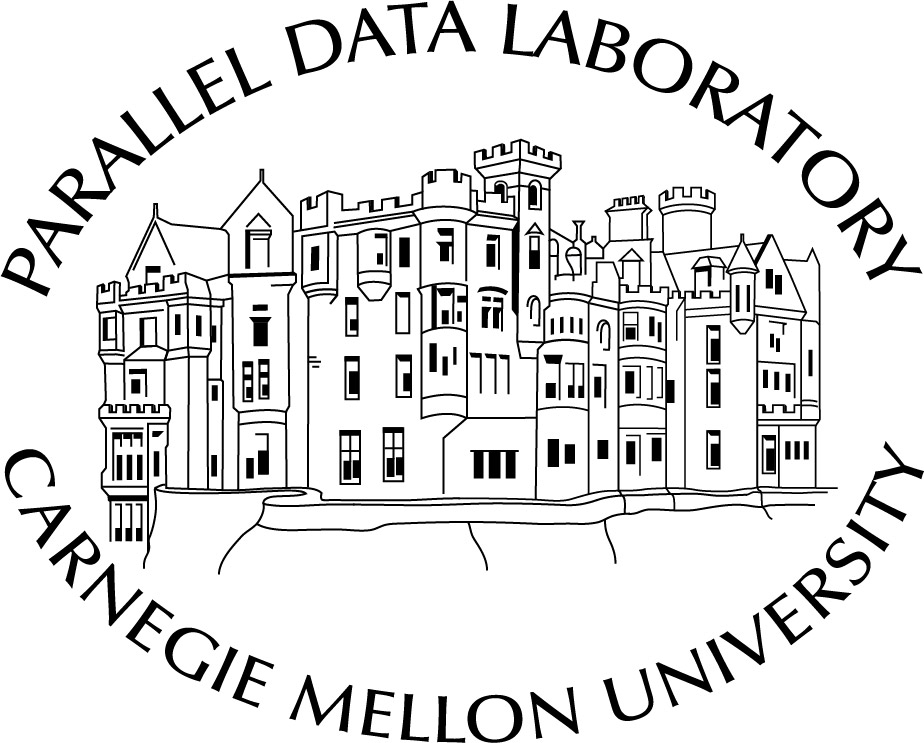Research
Creativity and Collaboration
SCS faculty and staff are busy thinking big, working hard and making the next great idea a reality. We welcome research collaborations and work closely with partners to develop and mature technologies from concept through delivery to end-users.
Want to learn more about how to engage with the people and programs at SCS?
Contact us to learn how you can participate in any of the sample research projects or programs listed below.
Research Centers and Initiatives
Carnegie Mellon University Database Group’s Industry Affiliates Program
Carnegie Mellon University Database Group’s Industry Affiliates Program (IAP) seeks to foster a dynamic partnership between academia and the database practitioners at early stage companies. As a hub for groundbreaking advancements in database systems, CMU-DB IAP has cultivated a unique ecosystem that brings together leading researchers, forward-thinking students and industry pioneers.
Center for AI-Driven Biomedical Research
The Center for AI-Driven Biomedical Research (AI4BIO) aims to develop new AI technologies to decipher the intricate language governing cellular structure and functions across a wide range of biological contexts.
Center for Informed Democracy & Social - Cybersecurity (IDeaS)
The goal of CMU's Center for IDeaS is to enhance social-cybersecurity to preserve and support an informed democratic society.
Center for Innovation in Health
The CIH advances digital health research and technology through the development of AI and computational solutions, collaborative partnerships, and transfer of knowledge and methods.
Center for Machine Learning and Health
Unprecedented resources through the Center for Machine Learning and Health have the potential to turn CMU's novel, interdisciplinary research and innovation into data-driven health solutions that matter.
Center for Transformational Play
The Center for Transformational Play uses the power of play to tackle educational, industrial and social challenges, from teaching children about robotics to helping adults with their aphasia rehabilitation exercises.
The CMU Foundation and Language Model (FLAME) Center
The CMU FLAME Center fosters fundamental research into powerful, open, and responsible foundation models applicable to all sectors of science and technology.
DARPA Triage
CMU's DARPA Triage Challenge Team seeks technology partners and funding sponsors to join this important effort combining health technology, robotics and the advancement of sensing capabilities to identify and classify human injuries in the field, with no physical contact, from 1 to 10 meters away.
Delphi Group
The Delphi Group develops the theory and practice of epidemiological forecasting, with a long-term vision of making this technology as universally accepted and useful as weather forecasting is today.
Extended Reality Technology Center
The Extended Reality Technology Center (XRTC) aims to boost research and development of augmented and virtual reality technologies, catalyzing their adoption in industry and society at large.
Responsible AI
CMU’s Responsible AI initiative brings together researchers and educators spanning computer science, engineering, decision sciences, philosophy, the arts, economics, psychology, public policy, statistics and business to direct advances in AI toward social responsibility.
Robotics, Embodied AI and Learning
Robotics, Embodied AI and Learning (REAL) integrates machine learning, computer vision, robotics and language technologies, culminating in the embodiment of artificial intelligence: robots that can see, do, think and act.
WebAssembly Research Center
WebAssembly (Wasm) has enabled a new, powerful class of web applications and languages and is being adopted in a diverse set of platforms. The WebAssembly Research Center supports the vision of Wasm as the next-generation universal execution platform.
National Artificial Intelligence Research Institutes
AI Institute for Collaborative Assistance and Responsive Interaction for Networked Groups (AI-CARING)
AI-CARING's mission is to develop the next generation of personalized collaborative AI systems that improve the quality of life and independence of aging adults living at home.
AI Institute for Future Edge Networks and Distributed Intelligence (AI-EDGE)
AI-EDGE will exploit the synergies between networking and AI to design the next generation of edge networks (6G and beyond) that are highly efficient, reliable, robust, secure, self-healing, adaptive and self-optimized.
AI Institute for Societal Decision Making (AI-SDM)
AI-SDM will develop human-centric AI to enable effective, agile, resource-efficient and trustworthy decision-making in uncertain and dynamic situations arising in societal use cases such as disaster management and public health.
USDA-NIFA AI Institute for Resilient Agriculture (AIIRA)
AIIRA is committed to speeding the progress, productivity and sustainability of today's agriculture by making the power of artificial intelligence available to all.
Collaboratives
Carnegie Mellon University CyLab brings together experts from a variety of disciplines across the university to collaborate on cutting-edge research and educate the next generation of security and privacy professionals. Everything we do is fueled by our passion to create a world in which technology can be trusted.
 The Parallel Data Lab (PDL) is academia's premiere data systems research center. An interdisciplinary group, its 50+ researchers come mainly from the School of Computer Science and Electrical and Computer Engineering Department. The PDL also has many friends in industry who generously provide us with advice and some of the funding and equipment necessary to carry out our research.
The Parallel Data Lab (PDL) is academia's premiere data systems research center. An interdisciplinary group, its 50+ researchers come mainly from the School of Computer Science and Electrical and Computer Engineering Department. The PDL also has many friends in industry who generously provide us with advice and some of the funding and equipment necessary to carry out our research.
The PDL has an almost 30-year track record of research, education and collaboration with industry. Read more about us in brief description of our genesis and early history.
